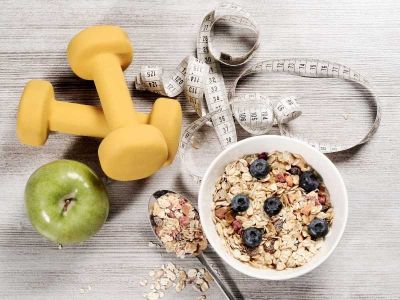Oct 1st, 2021
Eat Better! What you eat and drink can affect your body’s ability to prevent, fight and recover from infections, according to the WHO. Eat foods that are nutrient-dense, such as lean proteins, whole grains, fruits, vegetables and low-fat dairy products. Avoid highly processed foods like chips, candy, crackers, and cookies that are high in calories and low in nutrients. Consume foods as close to their natural state as possible, and choose low-sodium versions of packaged foods such as soups, frozen dinners, and canned vegetables. Choose snack foods rich in fiber and protein; this combination helps keep you feel fuller longer than sugary foods will. Plan healthy meals and snacks ahead of time to prevent impulse buying and eating. Chop your vegetables for the week on Sunday evening for salads you can
put together quickly after a work day.
Move More! Physical activity is an important part of everyone’s life. The WHO reminds us that during the COVID-19 pandemic, when so many of us are restricted in our movements, it is even more important for people of all ages and abilities to be as active as possible. Regular physical activity benefits both the body and mind. It can reduce high blood pressure, help manage weight and reduce
the risk of heart disease, stroke, type 2 diabetes, and various cancers. It also improves bone and muscle strength and increases balance, flexibility and fitness. Regular physical activity can also be a way to stay connected with family and friends.
Manage Stress! Pandemics can be stressful, and fear and anxiety about a new disease and what could happen can be overwhelming and cause strong emotions in adults and children, according to the CDC. Learning to cope with stress and anxiety is an important part of taking care of your mental health. Practicing mindfulness exercises can improve your ability to regulate emotions and decrease stress, anxiety and depression, allowing you to think more clearly, improve your mood and self-esteem and possibly enhance your relationships.
Help Prevent the Spread of Germs! Washing your hands with soap and water for a least 20 seconds especially after being in a public place, or after blowing your nose, coughing or sneezing can reduce the spread of germs. The CDC recommends washing your hands before eating or preparing food, before touching your face, after using the restroom, after leaving a public area, after handling your mask, after changing a diaper, after caring for someone sick, or after touching animals or pets. Avoid close contact with individuals who are sick. If a family member is sick, try to maintain at least six feet between the person who is sick and other household members. Monitor your health daily by being aware of symptoms like fever, cough and shortness of breath. You know your body better than anyone else and you know if something is not right.
*Adapted from New Hampshire Municipal Association.

